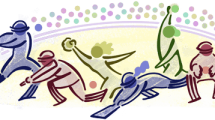Style Hut Desk: Winter in Delhi NCR brings with it a dense layer of smog, reducing visibility and making the air hazardous. The air quality index (AQI) often crosses the “hazardous” category, which is detrimental to all, but especially concerning for sensitive individuals.
Sources of Pollution
- Stubble Burning: Farmers in neighboring states like Punjab and Haryana burn crop residue, releasing massive amounts of smoke and particulate matter into the atmosphere.
- Vehicular Emissions: Increased vehicle usage, especially in winters, exacerbates the pollution levels.
- Industrial Emissions: Factories emit a significant amount of pollutants, contributing to the smog.
- Weather Conditions: In winter, cooler temperatures and low wind speeds prevent the dispersion of pollutants, making the air thicker and more toxic.
Health Impact of Pollution
- Respiratory Issues: Long-term exposure to air pollution can cause chronic respiratory diseases like asthma, bronchitis, and COPD (Chronic Obstructive Pulmonary Disease).
- Cardiovascular Problems: Polluted air can lead to heart disease and hypertension.
- Aggravation of Pre-existing Conditions: Those with asthma or other lung conditions are more likely to face severe symptoms during high pollution days.
- Mental Health Effects: Continuous exposure to poor air quality can also affect mental well-being, increasing stress and anxiety levels.
Precautions and Protective Measures
Given the severe pollution, it’s essential to take steps to protect your health, especially during winter when pollution levels peak.
General Precautions
- Stay Indoors: Limit outdoor activities, particularly during early mornings and late evenings when pollution levels are highest.
- Use Air Purifiers: Use air purifiers with HEPA filters to reduce indoor air pollution.
- Wear a Mask: N95 or P95 masks can help filter out fine particulate matter.
- Keep Windows Closed: Seal windows and doors to prevent polluted air from entering your home.
- Hydrate Well: Drink plenty of water to help flush out toxins from the body.
- Avoid Physical Exertion: Try not to engage in intense physical activities in areas with high pollution.
Precautions for Vulnerable Groups: Children and the Elderly
- Children:
- Limit Outdoor Activities: Children have smaller airways and are more susceptible to the effects of air pollution. Ensure that they stay indoors as much as possible.
- Masks: If children must go outside, ensure they wear a properly fitting N95 mask.
- Monitor Health: Keep track of any respiratory issues, like coughing, wheezing, or shortness of breath, and seek medical help immediately.
- Elderly:
- Stay Indoors: The elderly are particularly vulnerable to heart and lung conditions exacerbated by pollution.
- Use Oxygen Support: For individuals with pre-existing lung conditions like COPD or asthma, using oxygen support at home can be beneficial.
- Monitor Health: Regularly check for any signs of chest pain, difficulty breathing, or dizziness, and consult a doctor without delay.
When to Seek Medical Help
- Difficulty breathing, chest tightness, persistent cough, or wheezing.
- Symptoms that don’t improve with home remedies or medication.
- For those with pre-existing conditions like asthma, any worsening of symptoms warrants a doctor’s consultation.


























































